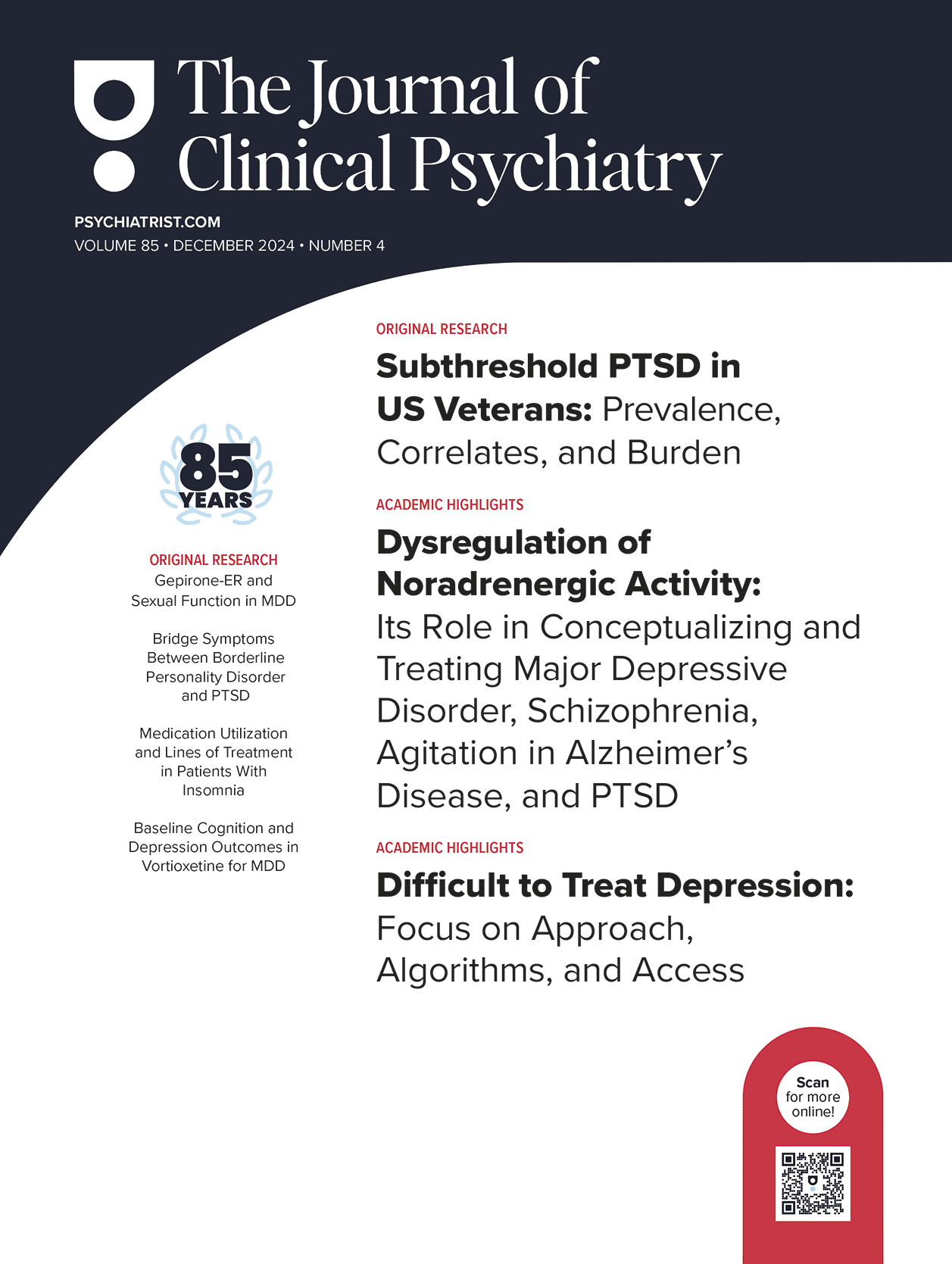Objective: The practical effectiveness of second-generation antipsychotics in children and adolescents is an understudied issue. It is a crucial area of study, though, because such patients are often treated for long-lasting disorders.
Methods: We carried out a 24-month (March 2012-March 2014) observational study on an unselected population of pediatric outpatients treated with risperidone, aripiprazole, olanzapine, or quetiapine aiming to (1) describe drug use, (2) compare post hoc the discontinuation rates due to specific causes and dose adjustments by Kaplan-Meier analyses between drugs, and (3) analyze predictors influencing these outcomes by Cox multivariate models.
Results: Among 184 pediatric patients, 77% patients were prescribed risperidone, and 18% were prescribed aripiprazole. Olanzapine or quetiapine were scantly used; therefore, they were excluded from analyses. Risperidone was prevalent in younger, male patients with disruptive behavioral disorders; aripiprazole, in patients with tic disorders. Overall, discontinuations occurred mostly in the first 6 months, and, at 24 months, the discontinuation numbers were similar between users of risperidone and aripiprazole (41.5% vs 39.4%). In univariate analyses, dose reduction was higher for aripiprazole (P = .033). Multivariate analyses yielded the following predictors: for all-cause discontinuation, baseline severity (hazard ratio [HR] = 1.48, P = .001) and dose increase (HR = 3.55, P = .001); for patient-decided discontinuation, dose change (increase: HR = 6.43, P = .004; reduction: HR = 7.89, P = .049) and the presence of concomitant drugs (HR = 4.03, P = .034), while autistic patients discontinued less (HR = 0.23, P = .050); for clinician-decided discontinuation due to adverse drug reactions, baseline severity (HR = 1.96, P = .005) and dose increase (HR = 5.09, P = .016); for clinician-decided discontinuation due to inefficacy, baseline severity (HR = 2.88, P = .014) and the use of aripiprazole (HR = 5.55, P = .013); for dose increase, none; for dose reduction, the occurrence of adverse drug reactions (HR = 4.74, P = .046), while dose reduction was less probable in autistic patients (HR = 0.22, P = .042).
Conclusions: The findings of this study show a similarity between the overall effectiveness of risperidone and aripiprazole in a real-life pediatric outpatient setting.
Continue Reading...
Did you know members enjoy unlimited free PDF downloads as part of their subscription? Subscribe today for instant access to this article and our entire library in your preferred format. Alternatively, you can purchase the PDF of this article individually.
Please sign in or purchase this PDF for $40.00.
Save
Cite
Already a member? Login




